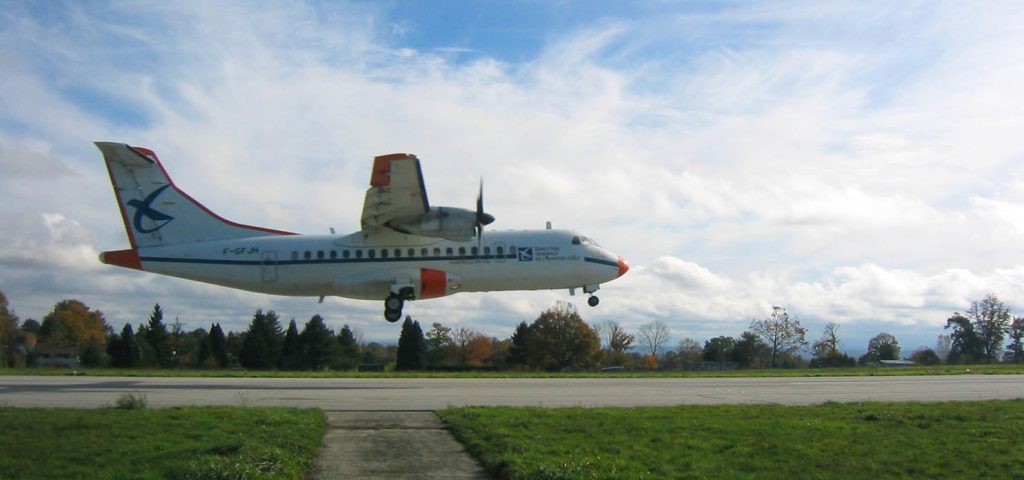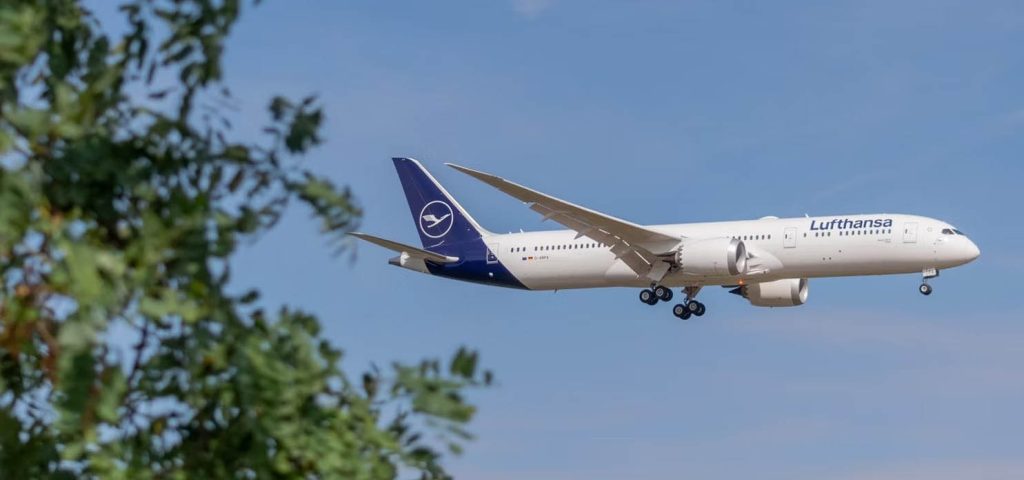Do you know your rights when your flight is canceled or delayed? Is your flight to New York delayed? Have you been bumped due to overbooking and unable to board? Has a snowstorm grounded your plane?
It happened to us in late June 2019 for a flight departing to Bangkok from Paris with Lufthansa.
There are many situations where travelers question their rights. What compensation can you expect? What are the conditions for claiming compensation? What are the procedures? Unfortunately, most travelers are poorly informed about their rights.
- Only 2% of eligible individuals claim their rights.
- 1 million French travelers could claim compensation.
- €440,000 could have been paid out.
With our passion for travel and our activity as travel bloggers, we regularly take flights. In fact, we’ve become experts in finding cheap airfares online. To benefit from our experience, check out our 12 tips for finding cheaper airline tickets on the internet.
Like many travelers, we have also faced strikes disrupting air traffic. Franck certainly can’t forget the 7-hour wait at Paris Charles De Gaulle Airport heading to Reunion Island a few years ago. And how can we forget one of our delayed flights from Paris to Barcelona where we had to wait for a replacement plane from Frankfurt!
Recently, as soon as we arrived at Charles De Gaulle Airport, we received an SMS from Lufthansa announcing the cancellation of our flight without reason. The airline did its part by getting us on a Qatar Airways flight 5 hours later. However, we found ourselves in an ideal case where we could claim maximum compensation.
Travelers’ Rights: Europe Protects You!
European legislation regarding passenger rights is clear. Regulation (EC) No 261/2004, stipulating passengers’ rights, was adopted by the European Parliament and has been in effect since 2005. It is available online in all EU languages. This regulation guarantees compensation of up to €600 per passenger for any flight delayed by 3 hours or more.
All travelers are covered provided that the delayed flight departs/arrives from/on an airport in the European Union, Norway, Iceland, or Switzerland. Note that for flights from airports outside the European Union, the flight must be operated by a European community carrier. It should also be noted that in cases of extraordinary circumstances, such as severe weather conditions, the airline is not obliged to provide compensation.
What Are My Rights?
Here are the different situations in which you can assert your rights and possibly receive compensation:
Compensation for denied boarding or flight cancellation
If you are denied boarding due to overbooking or if your flight is canceled, the compensation depends on the distance of the flight.
- Flight less than 1500 km: €250 per person.
- Flight between 1500 km and 3500 km, and intra-EU flight over 1500 km: €400 per person.
- Flight over 3500 km: €600 per person.
Knowing your rights as a traveler can make a significant difference when facing flight disruptions. Familiarize yourself with the regulations and be prepared to claim what you are entitled to, ensuring your journey is as smooth as possible, despite any unexpected setbacks.

Compensation for Delayed Flights
The same compensations are provided for delayed flights with an additional condition. To be eligible for compensation, the arrival delay must be 3 hours or more, regardless of the flight distance. However, in some cases, the compensation may be reduced by 50%. This applies if a passenger experiences a delay between 3 and 4 hours for a flight over 3500 km.
Due to a significant delay, you may also be entitled to meal vouchers, refreshments, and even an overnight hotel stay. If you decide to cancel your trip due to a delay of more than 5 hours, you have the right to request a refund for your airline ticket.
Steps to Claim Compensation for Delayed or Cancelled Flights
Firstly, contact the concerned airline, providing evidence of the inconvenience caused. If the airline does not respond, you can turn to the European Consumer Centre or the French Civil Aviation Authority (DGAC), which offers an online form for complaints. The DGAC handles cases of flights delayed or cancelled departing from or arriving in France.
Alternatively, you can seek assistance from a specialized company proficient in handling such disputes. Simply fill out details about the delayed flight, and the website will estimate the potential compensation. You can then decide whether to initiate legal proceedings. Typically, these companies charge a commission of 30% on the compensation received, meaning no fees are due if no compensation is obtained. Experts have access to flight databases and legal precedents in this field.
Compensation for Lost, Damaged, or Delayed Baggage
For lost, damaged, or delayed baggage, it is advisable to consult the DGAC website. In summary, to claim compensation (up to a maximum of €1200), you must submit a claim to the airline via registered mail with acknowledgment of receipt within the specified deadlines (1 to 3 weeks, depending on the case). Include photocopies of all relevant documents with your claim. If the airline does not respond, escalate the matter to the Directorate General of Civil Aviation (DGAC).

Understanding and asserting your rights as a traveler when faced with flight disruptions is crucial in navigating the complexities of air travel. Whether it’s a flight delay, cancellation, or issues with baggage, knowing what you’re entitled to under European regulations empowers you to take action and seek appropriate compensation.
The European Union’s Regulation 261/2004 stands as a pillar of protection for air passengers, ensuring that airlines uphold certain standards of service and accountability. It guarantees compensation for flight delays exceeding 3 hours, cancellations, and instances of denied boarding due to overbooking. This legislation aims to balance the power dynamics between passengers and airlines, ensuring that travelers are not unfairly inconvenienced or left out of pocket due to circumstances beyond their control.
For instance, if your flight is delayed or canceled, you have the right to essential services such as meals, refreshments, and even accommodation depending on the length of the delay. Furthermore, if the delay exceeds 5 hours and you decide not to travel, you are entitled to a refund of your ticket price. These provisions are designed to mitigate the inconvenience and financial impact on passengers, providing a safety net in situations where travel plans are disrupted.
In cases of baggage mishandling—whether it’s lost, damaged, or delayed—you also have rights under EU regulations. Airlines are obligated to compensate passengers for such incidents, up to a maximum of €1200, provided you submit a claim with all necessary documentation within the specified timeframe. This process underscores the importance of keeping receipts and records related to your journey, as they serve as critical evidence in support of your claim.
Moreover, navigating the process of claiming compensation can sometimes be daunting, especially when airlines are unresponsive or dispute the claim. Seeking assistance from specialized companies or consumer rights organizations can be advantageous. These entities have the expertise and resources to handle disputes effectively, often working on a no-win, no-fee basis, ensuring that passengers only pay if compensation is successfully obtained.
It’s important to note that while EU regulations provide a robust framework for passenger rights, there are exceptions, particularly in cases of extraordinary circumstances such as severe weather or political instability. In such instances, airlines may not be liable for compensation, but they are still obligated to provide necessary care and assistance to passengers affected by these events.
Ultimately, as travelers, being informed and proactive is key to safeguarding your rights and interests. Whether it’s familiarizing yourself with EU regulations, keeping track of your travel documents, or knowing where to turn for assistance, these steps can make a significant difference when faced with unexpected challenges during your journey. By asserting your rights responsibly and seeking recourse when necessary, you contribute to a more transparent and fair aviation industry, where passenger welfare remains a top priority.
Traveling should be a rewarding experience, and while disruptions can occur, knowing your rights ensures that you can navigate them with confidence and resilience. As regulations evolve and awareness grows, the hope is for continued improvements in passenger protection, making air travel a smoother and more reliable mode of transportation for everyone.
